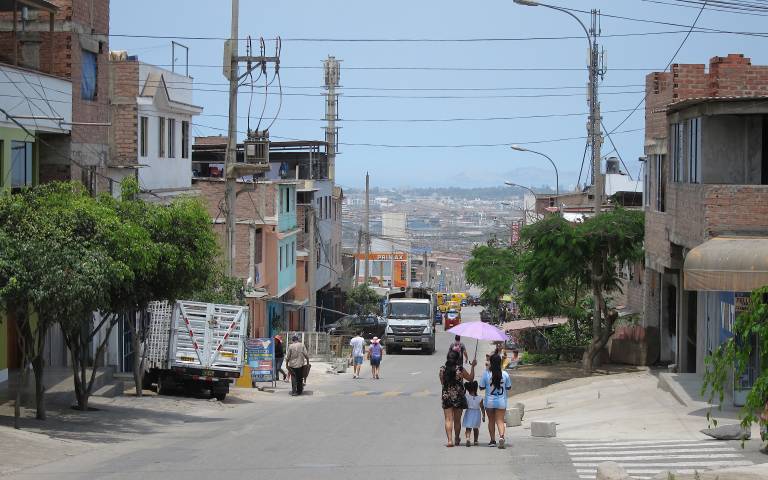Understanding COVID-19’s impact on mental health in Peru
29 October 2020
A UCL-led project exploring the impact of coronavirus on older people’s mental health in Peru is one of the first to receive new government funding, aimed at addressing the pandemic’s impact in low- and middle-income countries.

Professor John Hurst (UCL Division of Medicine) is one of 12 lead academics to receive funding as part of the Global Effort on COVID-19 (GECO) Health Research initiative, led by the National Institute for Health Research (NIHR), in partnership with UK Research and Innovation (UKRI).
Working with Peruvian NGO, AB PRISMA, and Johns Hopkins Center for Global NCD Research and Training, his study will explore the direct and indirect impacts of COVID-19 on the mental wellbeing of older adults in Peru.
The COVID-19 pandemic has disproportionately affected older adults worldwide, with this age group having the highest morbidity and mortality.
Measures such as quarantine and social distancing aim to reduce viral transmission and protect the most vulnerable. However, there are likely unintended consequences of such restrictive measures on the mental and physical health of older adults, including increasing feelings of loneliness, reduced physical activity, depression and anxiety.
The new study aims to generate data to inform interventions and policy to mitigate the effects of restrictive mobility measures on the physical and mental wellbeing of older adults from low resource settings.
Professor Hurst's research usually focuses on chronic obstructive pulmonary disease, or COPD, a long-term lung condition that was estimated to be the third commonest cause of death by 2020.
With the support of UCL Global Engagement Funds in 2017, he travelled to Peru with his Johns Hopkins collaborators to meet with their in-country partners for the first time at field sites where they wanted their research to take place.
The team were later awarded £1.2m by the MRC/Global Alliance for Chronic Disease to conduct a three-year study into COPD in Peru, Nepal and Uganda with a cohort of more than 10,000 people. Their findings are due to be published next year.
The new study supports a Peruvian early-career researcher, Dr Oscar Flores-Flores, to develop his own studies in the mental health of older adults, leveraging the investment from the original COPD study.
Professor Hurst said: “Building on existing collaborations between UCL and colleagues in Peru, I’m really pleased to give voice to the experiences of older adults living through coronavirus restrictions in Lima with the aim of reducing future impact.
"By collaborating in this way we are increasing research capacity in Peru, whilst the findings may help us better understand the effects of lockdown here in the UK.”
Dr Oscar Flores-Flores, Center for Global NCD Research and Training, Peru added: “COVID-19 ‘lockdown’ policies can significantly impact vulnerable older adults' mental health. Our Lima-based study makes visible older adults' quarantine experiences in low-resource settings to inform local policy adaptations."
Funded GECO projects span more than 18 countries across Africa, South America and South East Asia, covering topics such as transmission, infection control and how people are affected by the disease in different settings.
Links
- Professor John Hurst’s academic profile
- UCL Division of Medicine
- UCL Faculty of Medical Sciences
- Global Engagement Funds case study
Image
- Pampas de San Juan, Lima, Peru (credit: John Hurst)
Source
Media contact
Sophie Vinter
Tel: +44 (0)20 3108 7787
Email: s.vinter [at] ucl.ac.uk
 Close
Close

